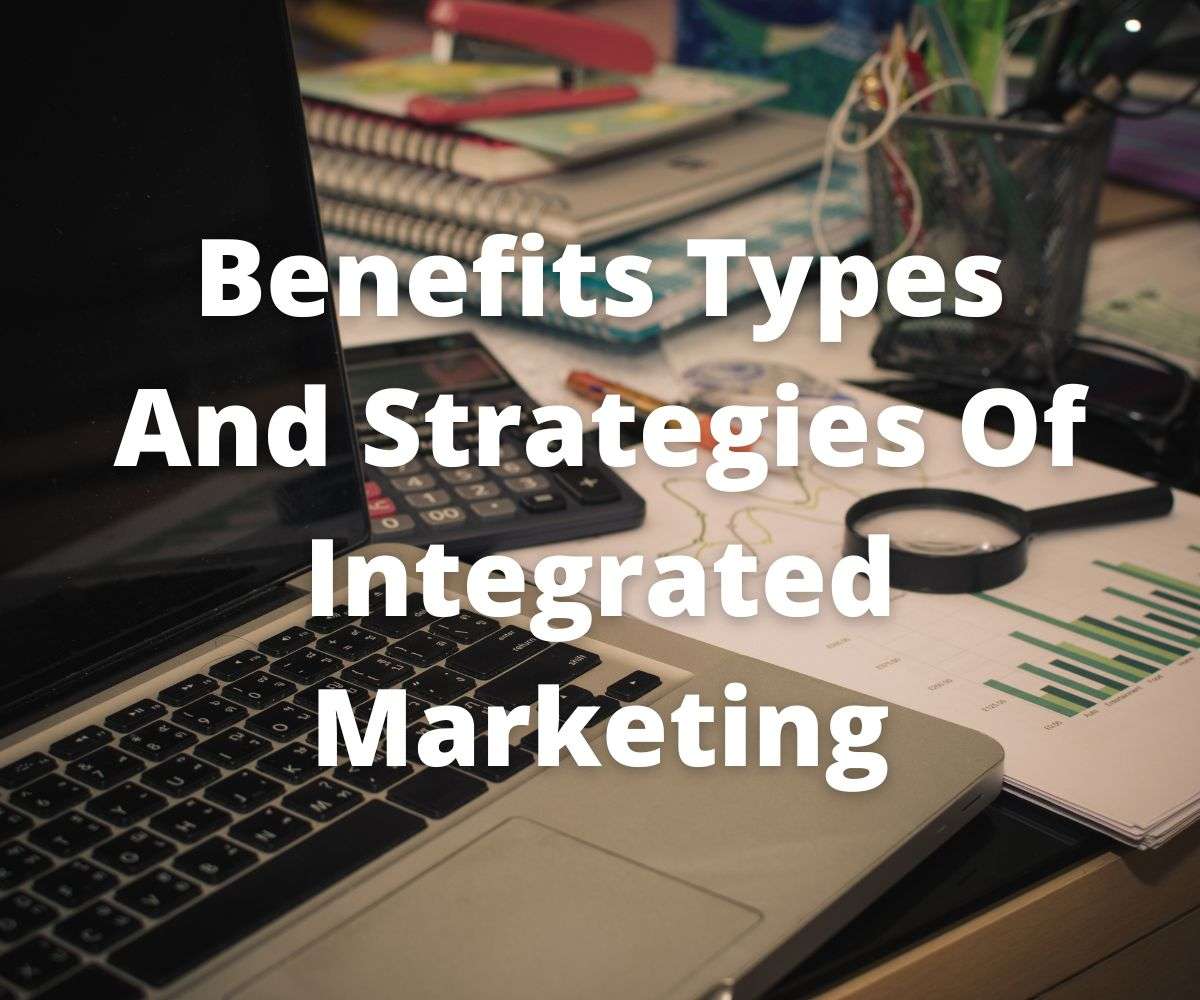
benefits types and strategies of integrated marketing
Why You Should Use Integrated Marketing Strategies
For maximum success in today's highly competitive market, an integrated marketing strategy is vital for every company.
Consumers in the modern day are subjected to a barrage of commercials daily.
Thus it is more important than ever for brands to develop integrated, cross-channel campaigns to reach their audiences.
Some of the most compelling arguments in favor of integrated marketing strategies for firms are as follows:
Reasons That Make Integrated Marketing Strategies a Must Use
1. Reach a Wider Audience
More people will see a company's marketing message if dispersed over many channels and platforms.
Integrated marketing campaigns can incorporate a range of tactics, including social media, email marketing,
content marketing, and traditional advertising, to engage potential customers across multiple touchpoints.
2. Consistent Brand Messaging
Integrated marketing strategies ensure that a brand's messaging and values remain consistent across all channels and platforms.
Building a consistent and distinctive brand identity may assist in winning the trust and loyalty of consumers.
3. Increased ROI
Businesses can create more opportunities for engagement and conversion by using integrated marketing strategies.
This can lead to a higher return on investment (ROI) for marketing campaigns, as more customers are reached and converted across multiple touchpoints.
4. Better Customer Experience
Integrated marketing campaigns can provide a more seamless and enjoyable customer experience by ensuring consistent messaging and offers across all touchpoints.
This can increase patron confidence and loyalty, increasing sales and word-of-mouth.
5. Better Data Analysis
Integrated marketing campaigns provide more data for businesses to analyze and optimize.
Businesses can identify the most effective tactics and make data-driven decisions for future campaigns
by tracking engagement and conversion rates across multiple channels and platforms.
Types of Integrated Marketing Strategies
1. Digital Marketing Strategy
This approach utilizes digital platforms like social media, email marketing,
or search engine optimization to get the word out and connect with the people you want to reach.
To fine-tune their strategies, firms may easily monitor the results of their digital advertising campaigns.
2. Content Marketing Strategy
This tactic emphasizes creating material that is both useful and interesting to your audience.
Blog entries, infographics, videos, podcasts, and more may all be used in content marketing.
3. Event Marketing Strategy
This strategy involves promoting your brand or product through conferences, trade shows, and product launches.
Events allow businesses to engage with their target audience face-to-face, building relationships and generating leads.
4. Influencer Marketing Strategy
Partnerships with influential people, such as bloggers or social media stars, might help spread the word about your business.
When done correctly, influencer marketing may be a very efficient strategy for reaching a defined consumer base.
5. Public Relations Strategy
This strategy involves using public relations tactics such as media relations, press releases, and crisis management to promote your brand or product.
Credibility and trustworthiness with your audience may be increased via public relations efforts.
6. Direct Marketing Strategy
This strategy involves reaching out to potential customers directly through postal mail.
Direct mail marketing is still an effective way of targeting your audience in a personalized, cost-effective manner.
It can be highly effective for generating leads and driving sales.
Steps for a Successful Integrated Marketing Strategy
1. Set Marketing Goals
Once you know your audience, you can set your marketing goals according to what you hope to accomplish with this promotional push.
Is your primary goal to expand your customer base, find new business opportunities, or boost current sales?
2. Develop a Unified Message
The next step is to develop a unified message that will resonate with your target audience across all marketing channels.
This message's delivery should be consistent across any medium.
3. Choose Marketing Channels
An integrated marketing strategy uses various marketing channels such as social media,
email marketing, advertising, PR, events, and direct mail to reach the target audience.
4. Create Content
Once you have chosen your marketing channels, you must create Content engaging your audience.
This Content should be tailored to each channel and consistent with your messaging.
5. Implement Your Strategy
Once you have developed your messaging, chosen your marketing channels,
and created your Content, it's time to implement your strategy.
This means launching your marketing campaign and monitoring its performance.
6. Measure Your Results
Taking stock of your progress is the last stage. Knowing this will allow you to assess your marketing strategy's success and identify improvement areas.
Ensure you are keeping tabs on the efficacy of your advertising initiatives by using channels.
Conclusion
In conclusion, integrated marketing strategies are crucial for businesses looking to maximize their impact and reach in today's competitive market.
By using multiple channels and platforms, creating consistent brand messaging,
and providing a seamless customer experience, businesses can increase ROI and gather more data for future analysis and optimization.
Companies may remain ahead of the competition and more effectively communicate
with their target audience by using integrated marketing techniques as part of their marketing mix.
Author's Bio:
Freelance writer Jenny Fries focuses on writing on business, health, lifestyle, and technology. She provides independent blogging and SEO content writing services. Fries enjoys writing vacation itineraries, traveling, and cooking when she's not writing.
